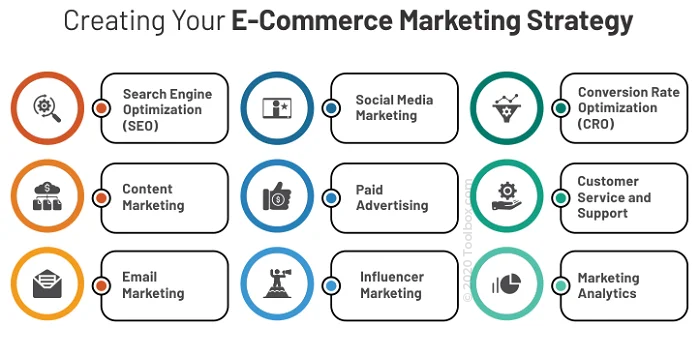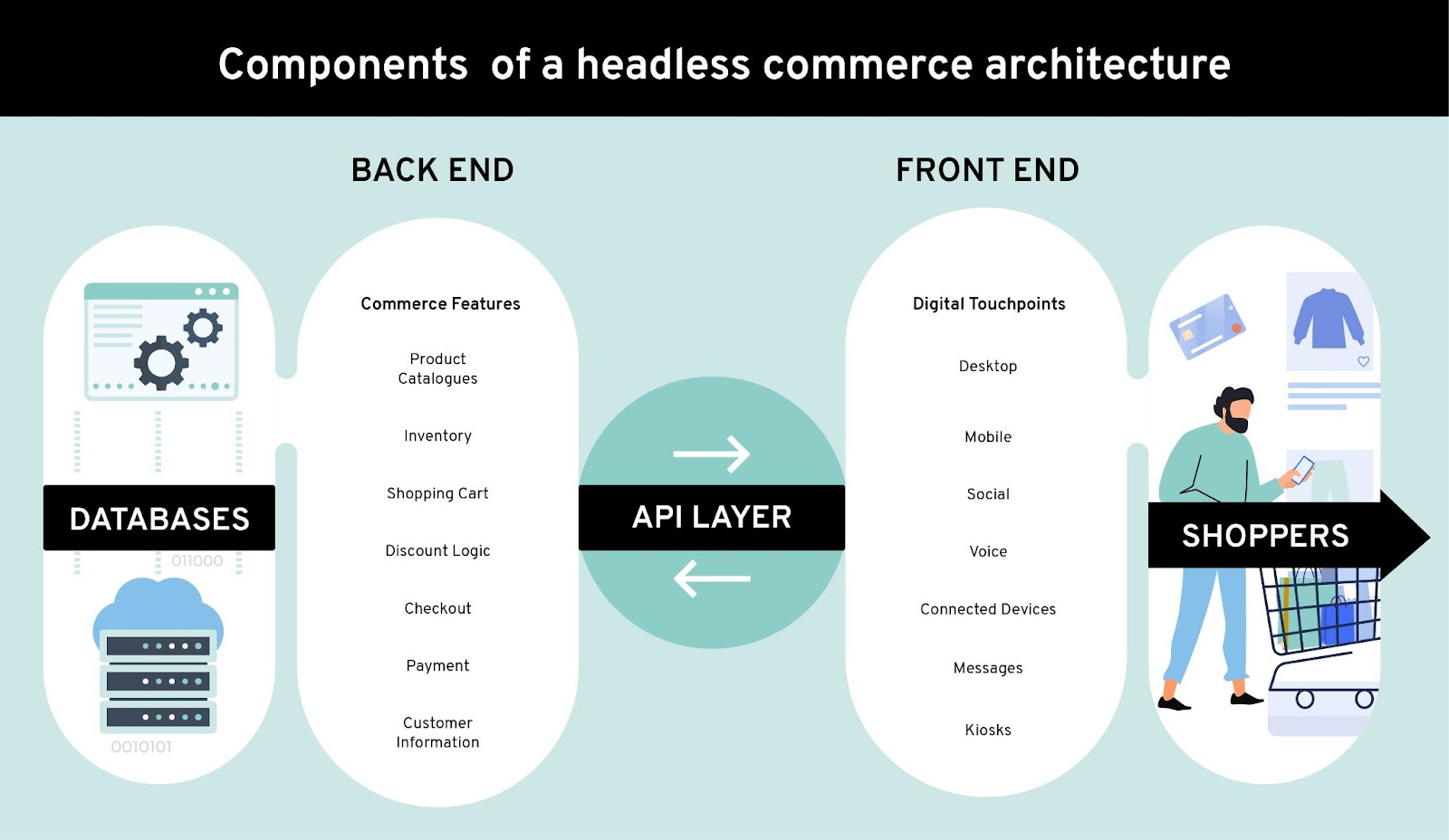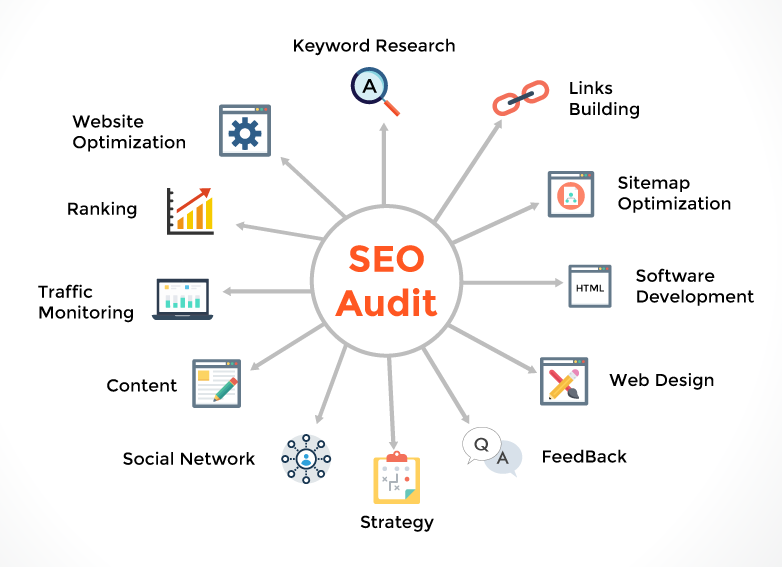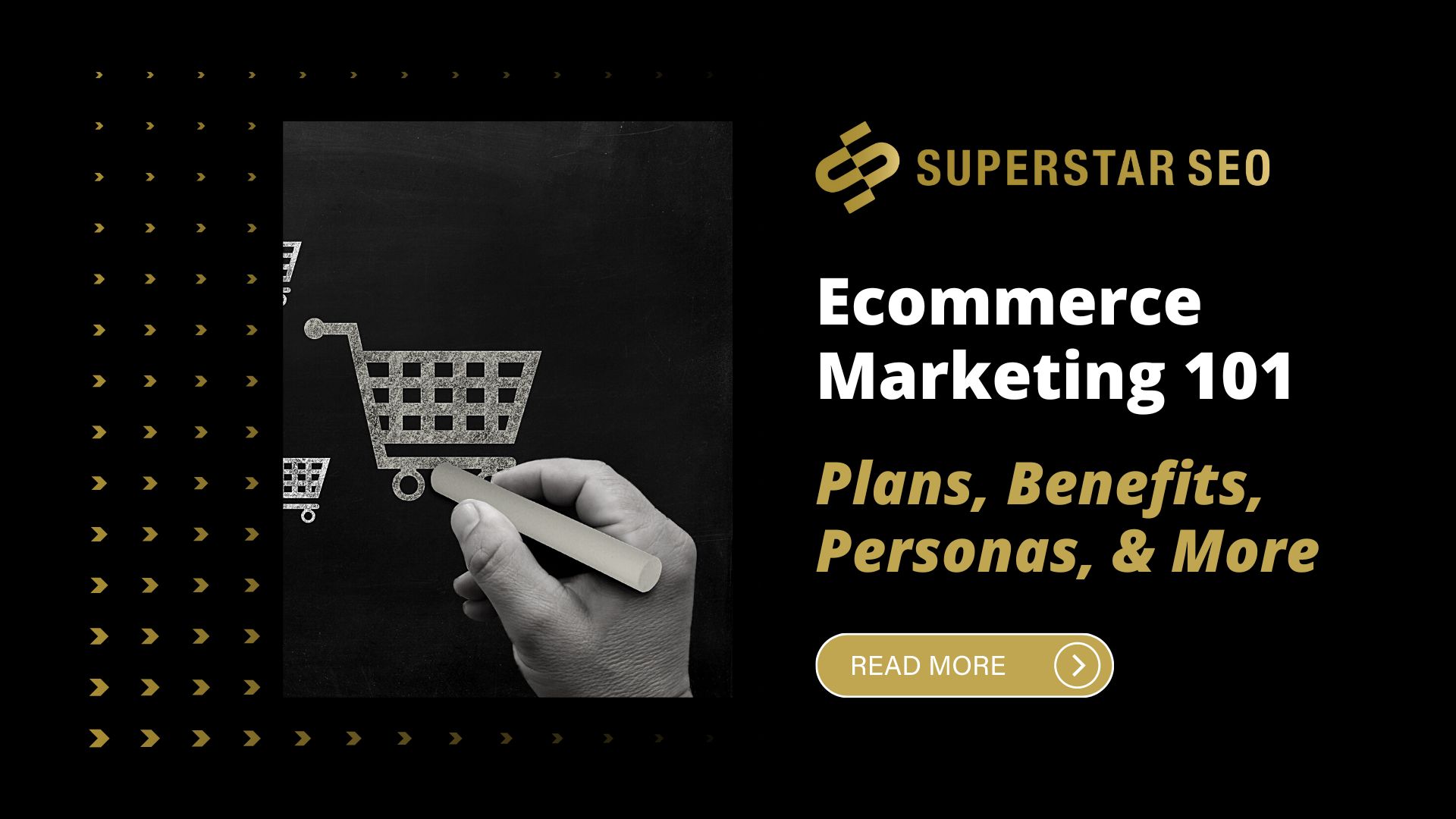eCommerce Marketing 101 – Plans, Benefits, Personas & More
eCommerce marketing can be a bit tricky to navigate, especially as more and more businesses enter the fray every day.
Many companies struggle with creating an effective marketing plan flexible enough to accommodate their ever-evolving goals, but it doesn’t have to be this way.
When you understand what your plan needs to look like, the benefits it needs to convey, the personas you need to target, and the channels you need to utilize, it becomes a whole lot easier.
What is eCommerce Marketing?
eCommerce marketing encompasses the strategies and practices used to promote and sell products or services online. It involves leveraging digital marketing channels to reach potential customers, drive traffic to online stores, and increase sales. With the rapid growth of online shopping and the evolving landscape of digital marketing, businesses need to adopt effective eCommerce marketing techniques to stay competitive.
Key Components of eCommerce Marketing
Digital Advertising: This includes paid search ads, display ads, social media ads, and retargeting campaigns. Digital advertising helps drive targeted traffic to your online store and can be highly effective in generating sales and leads.
Search Engine Optimization (SEO): SEO involves optimizing your website and content to improve its visibility in search engine results. Effective SEO strategies include keyword research, on-page optimization, and building high-quality backlinks.
Content Marketing: Creating valuable content such as blog posts, product descriptions, and videos helps engage customers and build brand authority. Content marketing also supports SEO efforts and can drive organic traffic to your site.
Email Marketing: This involves sending targeted emails to subscribers to promote products, share updates, and nurture customer relationships. Email marketing can be personalized and automated to enhance its effectiveness.
Social Media Marketing: Engaging with customers on platforms like Facebook, Instagram, and Twitter helps build brand awareness and drive traffic to your online store. Social media marketing includes posting content, running ads, and interacting with followers.
Conversion Rate Optimization (CRO): CRO focuses on improving the user experience on your website to increase the percentage of visitors who make a purchase. This can involve optimizing website design, streamlining the checkout process, and using A/B testing to identify the most effective strategies.
Benefits of eCommerce Marketing
With the increased globalization of trade and the internet, people’s shopping has changed drastically.
The pandemic has played a huge role too.
Online purchases have been consistently above pre-pandemic levels since October 2020.
That’s why it’s important to have a well-thought-out eCommerce marketing strategy to target your market effectively.
Here are some benefits of employing eCommerce marketing:
-More customers. Because many consumers are shopping online, it is more likely that they will find your product or service. This means that you may be able to sell more items and make more money.
-Improved brand recognition. More people are using search engines when looking for goods and services and will find your website if you’re listed in their search results.
-Better conversion rates. Online marketing makes for more personalized experiences, which can, as a result, improve eCommerce conversion rates by 8%.
Building an Effective eCommerce Marketing Plan
Set Clear Goals and Objectives
The first step in your eCommerce marketing strategy is to clearly identify your goals and objectives.
What are you trying to accomplish?
What do you want the outcome of your marketing efforts to be?
How will you measure success?
The answer to these questions can help you set specific goals and objectives for your marketing efforts.

Define Your Mission Statement and Value Proposition
Your mission statement is the most important part of your business, as it defines what you do and how you do it.
Your mission statement and value proposition are the two most important things you can do to define your brand, your voice, and your personality.
They are also the first things people will see when they visit your website.
Your mission statement is a short, clear statement of what you want to accomplish as an eCommerce business.
Your value proposition is a concise explanation of the benefits of buying from your company.
It should include the following:
What are the benefits of buying from this company? (e.g., free shipping, free returns)
How does this benefit compare to other companies?
What makes this company better than others?
Identify and Target Your Customers and Personas
When you think about marketing your eCommerce business, one of the first things that come to mind is also the target audience you want to attract.
That’s why before you make any plan, you must identify and know who to target.
How do you do that? By building customer personas.
Your customer persona is a more detailed representation of different groups of customers and how they interact with your brand.
It helps you identify what they will expect from your brand and how they’ll respond to different messages that you send out.
Once you’ve identified these persona profiles, then it’s time to figure out what makes them tick.
You can do this by asking questions like:
What are their problems?
What are their goals?
How do they make purchasing decisions?
What are their demographics? (age, sex, location)
What kind of shopping behaviors do they exhibit? (bookmarking products, searching for reviews)
This way, you can send them relevant content that will help them find what they’re looking for on your site or in one of your products or services.
Tips to Follow So That Your eCommerce Marketing Plan Succeeds
1. Differentiate Your eCommerce Brand
Your eCommerce brand is the face of your business, and it needs to be as distinct and memorable as possible to help you stand out from the competition.
If you want your eCommerce brand to be successful, you need to differentiate it from the competitors in your space.
Differentiation is a matter of creating a strong brand identity that helps customers recognize and trust your company’s products or services.
It’s about creating something special that makes consumers want to buy what you have to offer.
While differentiating is a little bit challenging in a time when every company wants to go online, there are still things you can do, such as emphasizing your customer experience, creating an engaging brand personality, and many more.
2. Think of Going Headless
The future of commerce is headless, meaning that you need to think about more and more personalization and customization.
Your eCommerce marketing strategy should not just be an eCommerce marketing plan but also an omnichannel strategy as well.
Traditional monolithic commerce platforms that shoppers have commonly come across are simple to set up – but that’s it.
There is little room for rich merchandising and design opportunities, and it is challenging to integrate your current systems.
On the other hand, headless eCommerce architecture offers you the freedom to create incredible shopping experiences for each customer at every touchpoint.

3. Think – Perfect Omnichannel Experience
A perfect omnichannel experience means that you are seamlessly integrating all of the channels your company is using to market and sell products in a cohesive way.
E-commerce marketing automation can help you create drip campaigns to automatically send out content to your audience on a set schedule.
In this case, eCommerce marketing strategies will help you prioritize which marketing channels are most effective for reaching potential customers based on their stage in the buying process.
It will also help you determine what type of content you should produce for each channel so that it resonates with your customer personas.
Even if you serve B2B customers, sell through social media.
4. Utilize eCommerce Chatbot
Your eCommerce marketing tactics should include a plan for utilizing chatbots best.
Using chatbots has many benefits for your ecommerce store as many customers prefer them even compared to a “human” salesperson.
They have become one of the most powerful ways to engage with potential customers and delight all returning customers.
Customers prefer them because they provide a quicker way of getting the information they need, whether for selecting a product or checking if the order was shipped.
There are two types of chatbots you should use.
You can display them on your site using a live chat widget or use a chatbot on your social media platforms.

5. Conduct an SEO Audit
Conducting an SEO audit is a vital step in any eCommerce marketing strategy.
You need to find gaps in your product offerings, content, or website that need to be addressed, from keywords to backlinks.
Search Engine Optimization is an incredibly effective marketing tactic because more than 40% of product searches begin on search engines.
Additionally, another study analyzing over 18,000 eCommerce stores in the US found that 53.3% of all traffic came from organic searches on Google, Yahoo, and Bing.
And it’s not enough to only show up somewhere on the search engines.
You have to show up on the first page.
Studies show that more than 70% of ALL organic traffic is on the first page of Google.
So, keep SEO in mind and conduct an audit to see what’s not working and what you have to fix immediately.
So if you want that large chunk of organic traffic to your online store, then you need to optimize your eCommerce SEO.

6. Make Use of Different eCommerce Marketing Automation Tools
Just like with everything else, it’s essential to use the right tools for the right job.
When you buy an eCommerce website, you want to make sure that it’s as effective as possible.
You don’t want to pour money into a website that isn’t doing what it is supposed to do.
E-commerce marketing automation tools are designed to…um… automate the tasks involved in the eCommerce business.
They help you manage your marketing campaigns, email sequences, social media advertising, and more.
There are several different types of eCommerce marketing automation tools available on the market today, including:
Email Marketing Automation Software
SEO Marketing Automation Software
Conversion optimization tools
Website optimization tools
Ecommerce analytics tools
Research tools
Email marketing & customer relationship management tools
Content marketing & social media marketing tools
Actionable Tips for eCommerce Marketing Success
1. Conduct Regular SEO Audits
Regular SEO audits are essential for maintaining and improving your eCommerce site’s search engine performance. An effective SEO audit helps identify gaps, opportunities, and areas for improvement in your website’s optimization strategy.
Importance of Regular SEO Audits:
Identify Issues: Regular audits help uncover technical issues, broken links, and on-page optimization errors that could impact your site’s ranking and user experience.
Optimize Performance: By pinpointing areas for improvement, you can refine your SEO strategies to enhance your site’s visibility and attract more organic traffic.
Stay Competitive: Ongoing audits ensure your site remains aligned with search engine algorithms and best practices, keeping you ahead of competitors.
SEO Audit Checklist:
Technical SEO Analysis: Check for crawl errors, mobile-friendliness, site speed, and secure connections (HTTPS).
On-Page SEO Review: Assess keyword usage, meta tags, headings, and content quality.
Off-Page SEO Evaluation: Analyze backlink profiles and domain authority.
Content Quality Check: Ensure content is valuable, relevant, and updated regularly.
Competitor Analysis: Review competitors’ SEO strategies and performance for insights.
2. Focus on Customer Experience
Enhancing customer experience is crucial for eCommerce success. A positive experience encourages repeat business, boosts customer satisfaction, and fosters brand loyalty.
Importance of Customer Experience in eCommerce:
Retention and Loyalty: A seamless and enjoyable shopping experience increases the likelihood of repeat purchases and customer retention.
Brand Reputation: Positive experiences lead to favorable reviews and word-of-mouth recommendations, strengthening your brand’s reputation.
Competitive Advantage: Exceptional customer service and user-friendly design can differentiate your brand from competitors.
Tips for Enhancing Customer Experience:
Website Design: Ensure your website is intuitive, visually appealing, and easy to navigate. Optimize for mobile devices and streamline the checkout process.
Customer Service: Provide responsive and helpful customer support through various marketing channels, such as live chat, email, and phone. Address customer inquiries and issues promptly.
Personalized Marketing: Use data-driven insights to create personalized marketing campaigns. Tailor product recommendations, offers, and content to individual customer preferences and behavior.
3. Stay Updated with Industry Trends
Keeping up with the latest eCommerce trends and technologies helps you stay competitive and adapt to changes in the market.
Importance of Staying Informed:
Adapting to Change: Industry trends and technologies evolve rapidly, and staying informed allows you to adapt your strategies and leverage new opportunities.
Innovative Strategies: Being aware of emerging trends helps you implement innovative marketing techniques and tools that can enhance your eCommerce efforts.
Competitive Edge: Knowledge of industry developments gives you a competitive edge by enabling you to anticipate changes and stay ahead of competitors.
Resources for Staying Up-to-Date:
Industry Blogs: Follow reputable eCommerce and digital marketing blogs for insights and updates.
Newsletters: Subscribe to newsletters from industry leaders and experts for regular updates and trends.
Webinars and Conferences: Participate in webinars and industry conferences to gain knowledge and network with professionals.
Influencer Marketing: Leverage insights from influencer marketing trends and case studies to incorporate effective strategies into your eCommerce marketing plan.
Recap
The benefits of a successful eCommerce marketing strategy are huge.
You can set the tone for your company’s digital marketing efforts by making a well-planned strategy for your business.
Such a plan is important because it helps you stay on track with your goals and objectives.
As an online business owner, you need to find ways to get buyers to your online store before you can sell them anything.
And sometimes, it’s not about writing the greatest online sales copy.
Instead, it’s about finding the quickest, easiest way to connect with your intended audience and answer their needs.
Whether those needs are practical or need related to entertainment value, it’s still a matter of the ease with which people can find your online store and your ability to connect and convince customers that they need your products or services.





